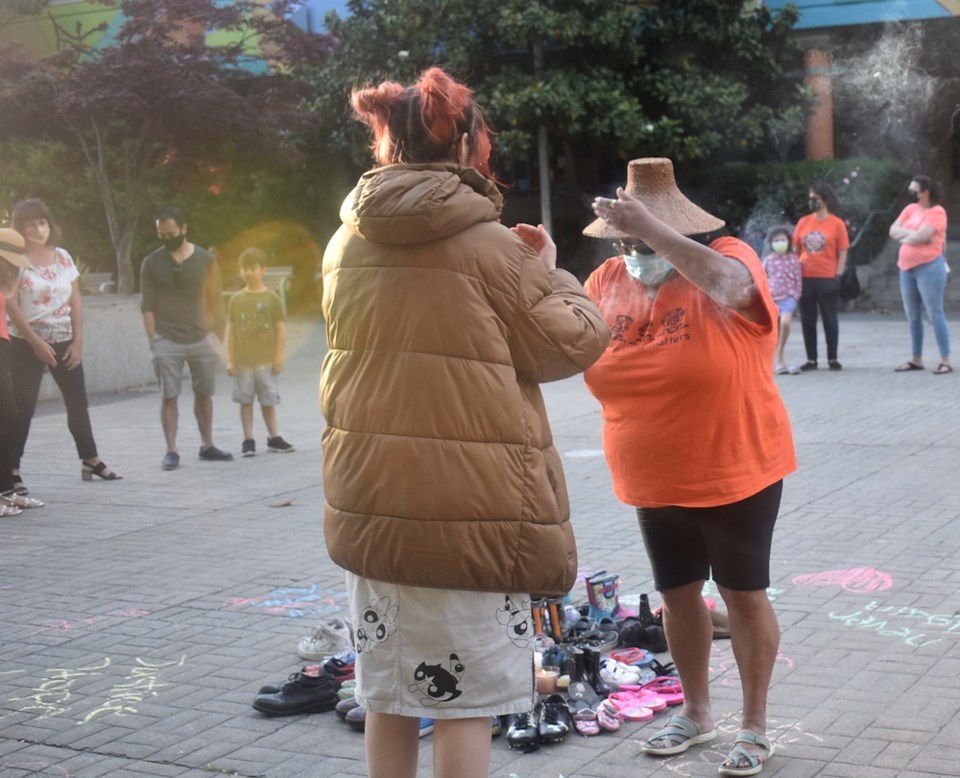The City of Richmond and its staff will be wearing orange on the first National Day for Truth and Reconciliation, Sept. 30, to honour residential school survivors and children who died in these church-run facilities.
City hall will be closed but other city facilities, like community centres, will be open.
The National Day for Truth and Reconciliation was established in response to the calls to action by the Truth and Reconciliation Commission (TRC) to honour residential school survivors and remind the public of the history and legacy of the residential school system.
It’s estimated 150,000 Indigenous children were taken from their homes across Canada and forced into residential schools where many were subjected to physical, mental and sexual abuse.
When unmarked graves of what appear to be 215 Indigenous children were found on the grounds of the former Kamloops Indian Residential School this summer, two grassroots vigils were held at library square near Minoru Park. Hundreds of shoes were brought to the square to commemorate the children.
In a ceremony held a few weeks later, the shoes were burned.
The City of Richmond and its council have been publicly criticized for not doing a land acknowledgment at the beginning of its meetings.
However, Richmond’s mayor Malcolm Brodie has cited two lawsuits over land issues as the reason for not being able to acknowledge Richmond is on unceded First Nations’ land.
A 300-day trial, whereby a group of First Nations have taken the federal government and the City of Richmond to court, is underway over a large swath of land near Triangle Beach.
There is also a dormant lawsuit brought on by the Musqueam over the Garden City Lands, located in central Richmond that is being developed into an urban agricultural area and bog reserve.
Brodie told the Richmond News Friday there have been recent discussions with the Musqueam about the Garden City Lands’ lawsuit, but he couldn’t comment further on it.
The city is marking Sept. 30 as a time to “commemorate, educate and reflect on the history and ongoing impacts of residential schools.”
In a press release, Brodie said this national day provides an opportunity to “pause, reflect and learn” about the history of Indigenous people and the legacy of residential schools.
“Residential schools are a tragic part of Canada’s shared history, resulting in a painful legacy and multi-generational impacts to Indigenous peoples,” he added.
The date coincides with Orange Shirt Day, which honours the story of Phyllis (Jack) Webstad, a former residential school student who had her new orange shirt, bought by her grandmother, taken away on her first day at residential school.
The orange shirt has since become a symbol of remembrance of all Indigenous children removed from their families to attend residential schools.
City staff at community facilities will wear orange ribbons or shirts during the week of Sept. 27 to Oct. 1 in recognition of residential school survivors.
The Richmond Public Library Brighouse Branch will be open from 10 a.m. to 2 p.m. and will feature books with Indigenous perspectives.
All city staff will be required to complete Indigenous awareness training over the coming months and interactive workshops on Indigenous peoples and culture will be available.


